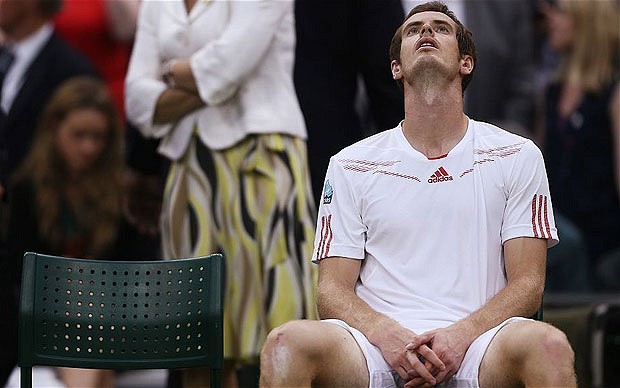Sports Good Coaching & Investment Analogies
Post on: 11 Июль, 2015 No Comment

FORECASTS & TRENDS E-LETTER
By Gary D. Halbert
December 19, 2006
IN THIS ISSUE:
1.  Know The Object Of The Game
2.  Dont Forfeit The Game
3.  Having A Good Offense And Defense
4.  Player Selection
5.  Conclusions & Merry Christmas
Introduction
This week, I want to borrow some of the excitement related to the professional football playoffs and college bowl season to draw some analogies between sports and investing.  Though sports analogies are sometimes overdone, my extensive involvement in my kids teams gives me a great perspective that I think you will find informative and entertaining.
Sports are a huge part of life for the Halbert family.  My 16 year-old son plays football, basketball, baseball and is an active wakeboarder/wakesurfer in the summertime.  My 14 year-old daughter has played basketball and softball for years and is also a serious wakeboarder (we live on a lake).  So were a sporting family year-round.
Due to no plans of my own, I got involved in coaching youth sports over a decade ago, and it has been one of the greatest blessings I have ever had in my life.  When I took my son to his first tee-ball practice many years ago, I noticed that there was only one coach and about 15 kids, some of whom didnt even have their gloves on the correct hand.  So I stuck around to help until the other coaches arrived.  No one else ever showed up.
At the second practice, the same thing happened, so I helped again never once imagining that I was embarking on a coaching career.  At the end of the second practice, the coach motioned me over to his pickup truck, reached inside and handed me a team tee shirt and said, Youll be my assistant coach.  It didnt sound like there was a choice in the matter.  As it turned out, this fellow was the president of the local youth sports association, and he and I went on to coach not only baseball but also football and basketball for the next several years. 
I was not a jock in college, so I had no intimate knowledge of baseball, football or basketball, other than my high school experience and as a viewer of sports on TV.  Thus, I was hardly a candidate to become a good or successful coach.  As a result, I have stacks of videotapes on coaching youth sports in my closet, which I used to educate myself on how to coach the various sports.
I continue to coach my sons baseball team at the private Christian school he and my daughter attend.  FYI, my sons Varsity football team won the State Championship two weeks ago!  (See photo. )  We are already gearing up for the 2007 baseball season which kicks off in January.  They keep asking me back to coach, and I keep saying YES (thank you very much).  I love it!  Coaching sports with these kids is a real joy in my life.
Now this is a long and personal introduction to make the following point.  Over the years, I have noticed that my coaching activities are sometimes similar to my role as an investment manager.  In other words, the role I play in my clients financial planning is that of an investment coach.   For the last 30 years, I have been helping clients with their investments, educating them on the dos and donts and steering them toward professionally managed investment products.
In essence, Im trying to do the same thing with investors that I try to do in sports practice and on the playing field: coach them to be more successful .  While it seems that sports analogies are becoming almost trite, my experience has been that there are some key premises in relation to sports that I believe apply very well to the field of investments. With that in mind, lets look at some of these analogies and see how they might apply to your investing experience.
The Object Of The Game
By coaching my son and daughter through various ages, I have been able to see how they and their teammates have developed over the years.  Perhaps the funniest, yet most frustrating years were the early ones, where many of the kids did not realize what the game was all about.  If you have ever attended a beginners tee-ball game, you probably know what I mean.  Whenever the ball is hit, it seems that every player on the field takes off after it.  They completely forget about strategy, thinking that the real object of the game is to get the ball, not play their positions.
As odd as this may sound, there are many adults who are doing exactly the same thing in relation to their investments.  They do not take the time to sit down and determine their long-range goals, so they settle for chasing after the latest hot stocks or funds or investment fads, without a long-term game plan or a disciplined strategy. 
Other investors think that they have a better understanding of the game, but focus on the wrong things.  Like the baseball player who ignores his coachs signals and swings for the bleachers every time hes up to bat, some investors concentrate on hitting investment home runs and take on way too much risk.  A classic example was the dot-com boom in the 1990s, and we all know how that turned out. 
In either case, the end result can be that investors lose the game.  Fortunately, the object of the investment game is usually quite simple to meet long-term financial goals.  Whether it is achieving the lifestyle you reasonably desire, funding your kids college education, saving for a comfortable retirement, or whatever, you must be a good saver and have a plan and a strategy for your investments.  A good investment strategy is one that balances returns versus risks.
Dont Forfeit The Game
One of the most frustrating feelings in the world is to lose a game by forfeit.  It means that, for one reason or another, you couldnt put a team on the field and had to give up without even trying.  Its a lousy way to lose a sports competition, and even worse when applied to investments.

Once the object of the investment game is known, there are still a lot of questions.  The investment industry is truly one of the most confusing places to try to navigate, sometimes even for experienced investors.  Thus, some investors become so confused by all of the various offers, claims and strategies that they do nothing.  In essence, they forfeit the game.
If you doubt this statement, just consider a recent study of nine million 401(k) participants by Fidelity Investments.  The study found that many participants have all of their money in just one investment.  Of those, nearly 40% have all their assets in conservative investments such as so-called stable-value funds, which are little more than glorified money-market funds, or fixed-income funds.  
Others show up for the game and play the first half, but then give up.  I have often written about investors who bail out of the market when losses become too high, only to invest in the next hot stock or mutual fund, and end up getting burned again.  Eventually, some of these investors get to the point where they cant bear the thought of losing any more money and move all of their funds to CDs, T-bills or similar investments that provide relative safety, but with returns that barely keep up with inflation. 
Just as there are people who should never play sports because they have no interest or talent, Ill be the first to admit that there are people who should not invest in the equity markets in any way.  The reason is that their risk tolerance is such that the thought of losing any money would keep them up at night.  This doesnt mean that they will never meet their financial goals, but it does mean that theyll likely have to save a lot more to do so.
It is my opinion, however, that most investors need the potential growth that equities can provide to meet their financial goals.  However, giving up on investing (or never trying in the first place) will not likely lead to their success.  What these investors need are strategies that seek to balance risk and reward, with the potential to minimize losses while also participating in up market gains.
Having A Good Offense And Defense
Another important analogy between sports and investments is the idea that you cant concentrate on just offense or defense, you have to play both.   If you focus too much on one and not the other, youre not likely to win many games.
Theres an old football saying: Offense wins games, but defense wins championships.   That was never more true than in our football State Championship game two weeks ago.  My sons team (he plays safety on defense and receiver on offense) held the highest scoring team in the division, and their runningback who rushed for almost 3,000 yards and 37 touchdowns on the season, to ZERO POINTS in the second half and won the State Championship 16-13. 
Over my years of coaching, I have witnessed sports teams that have a fantastic offense, but their defense could not keep the other team out of the end zone.  On the other hand, I have also seen teams with strong defenses that couldnt seem to put a score on the board.  It just makes logical sense that being strong in one or the other does not necessarily mean youll win the game.
While this is a common sports analogy, it may surprise you that a number of popular investment strategies used by millions of investors are all offense and no defense .  As I will discuss below, I think most buy-and-hold investment strategies Wall Street offers could be described this way.  Only if the market goes up do you make money, and when it goes down, you can lose big.
This is why I like to emphasize both offense and defense on the playing field, and why I favor active management strategies for most of my investments.  Most active management strategies include the flexibility to exit the market (partially or fully) or hedge long positions if market trends turn ugly.  This is one good way of playing defense in your investments.  However, they also have ways to put the offensive unit back on the field through sophisticated strategies for getting back into the market.
Why Defense Is So Important, But Often Overlooked
If you have read my E-Letters for long, you know that my main emphasis is on avoiding large losses in your investments.  I apologize if youve already seen the table below (we publish it often), but it cant be repeated too often in my opinion.  The breakeven table below illustrates just how devastating large losses are, and how difficult it is to recover from them.














